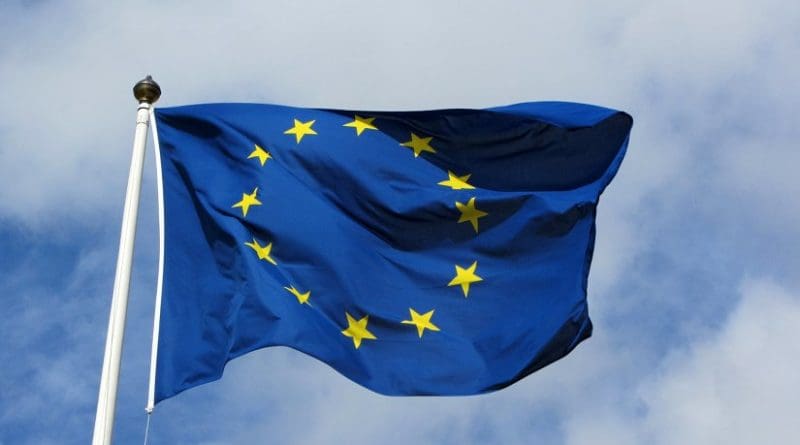The EU Doesn’t Need Another Agency: Need To Take Politics Out Of Decision-Making – OpEd
When striking up a casual conversation about contemporary EU politics, there is no shortage of available topics; opinions on immigration reform, burgeoning independence movements, and the state of Brexit negotiations are as diverse as they are impassioned. Few Europeans, however, may yet have had a chance to solidify their stance regarding glyphosate and biofuels – that is, until some eyebrow-raising policy shifts in recent weeks.
The controversy has arisen from a common problem within the EU: the failure of policymakers, non-governmental and industry stakeholders to reach a consensus on how to regulate key substances – in this case, glyphosate. In order to rebuild confidence in EU institutional decision-making, agricultural expert Luc Vernet has now called for the establishment of a “third independent body” between politicians and the European Food Safety Authority (ESFA). You’d be forgiven for thinking the EU is already awash with agencies and working groups: it is. Rather than setting up yet another agency, then, the EU must rely on its existing internal experts, carving a path where decision-making is more streamlined, transparent, and independent from political whims. Its credibility depends on it.
Vernet’s suggestion comes after the EU’s latest failure to reach an agreement on whether to relicense glyphosate ahead of its 15th December expiration. The deadlock comes amid heightened fears about the health effects of glyphosate following the International Agency for Research on Cancer’s (IARC) 2015 much-maligned decision that the molecule is ‘probably’ carcinogenic. In subsequent studies, however, both EFSA and the European Chemical Agency (ECHA) found no evidence linking the chemical to cancer in humans. Most recently, in the clearest sign yet that the molecule is benign, the world’s largest study of the effects on herbicides on health – the US government-funded Agricultural Health Study – published new findings showing there was no evidence of a link between glyphosate and cancer.
Following the positive assessments from EFSA and ECHA, the European Commission proposed a five-year re-approval of the license for glyphosate. Yet due in large part to lingering controversy over IARC’s evaluation, as well as heated opposition from green activists, last week, only half of the member states supported what should have been a straightforward, non-contentious proposal.
By failing to approve or reject the Commission’s proposal, doubts over the efficacy of EU decision-making have been reignited, with voices as far as Australia, Chile, and Canada expressing concern over the skepticism shown towards otherwise legitimate scientific bodies. Concerns over anticipated trade disruption and the competitiveness of the European agricultural sector have also emerged: in the wake of any EU-wide ban on glyphosate, European farmers will be left with no viable substitute.
A comparable situation can be found with biofuels, following a recent European Commission proposal to phase out the substances by 2030. Under the proposal, crop-based first-generation biofuels will face reduced caps as a contribution to transport fuel: from a maximum of 7% in 2021 to 3.8% in 2030. Renewable electricity and advanced biofuels will have their share raised to 6.8% in the same period. According to critics, however, in this case, the European Commission’s logic is off, as the scientific reasoning behind these proposed changes is weak.
The reduced caps are part of plans to revise the European Directive on Renewable Energies (RED II), which aims to boost the growth of second-generation biofuels. In adopting these caps, EU members use the Indirect Land Use Change (ILUC) factor to determine the viability and environmental impact of a particular biofuel – a factor which has come under fire for being arbitrary and narrow-sighted in its treatment of renewable energy sources while ignoring the impact of fossil fuels.
Fearing major losses to their agricultural sectors, the Visegrád group (Hungary, Slovakia, the Czech Republic, and Poland), together with Romania, Bulgaria, and certain Balkan states, have slammed the proposal. Citing the central role biofuel production has come to play in rural development, these member states have instead called for a maintenance or increase to renewable energy sources, first-generation or otherwise. The consequences of the proposed restrictions, they say, will be huge.
Under the RED II Directive, critics anticipate a 1.3 million tonne deficit in rapeseed meals, necessitating a 25% increase in soybean imports from North and South American farmers to the inevitable detriment of European producers. In the same way, any move to limit the production of first-generation biofuels is likely to necessitate a rise in imports of fossil fuels, a disturbing pressure following EU commitments to the Paris climate change pact and counterintuitive to the intended outcomes of the Commission’s plans.
The creation of an additional agency, as per Vernet’s suggestions, will not make a dent in these kinds of deadlocks. Instead, EU politicians must simply back their own scientists. Especially in light of recent revelations that agenda-driven scientists at IARC conducted major deletions on a draft assessment of glyphosate in order to support its cancer findings, a rational, even-handed approach to policymaking is more important than ever before. By twisting evidence of the carcinogenic effects of glyphosate in humans, IARC has cast aspersion on a substance which European farmers, and the public, have no reason to fear – and policymakers have taken their lead rather than heeded their own experts.
The science, and the answers to the glyphosate problem, are clear; even so, the issue has become instrumentalized in the public debate with European lawmakers swayed by those who shout the loudest. Though Vernet’s proposal seeks to clarify the debate, the last thing Europe needs is another voice in the fray.
*Alicia Conway is currently undertaking a Master’s in Economics and Management in London.

